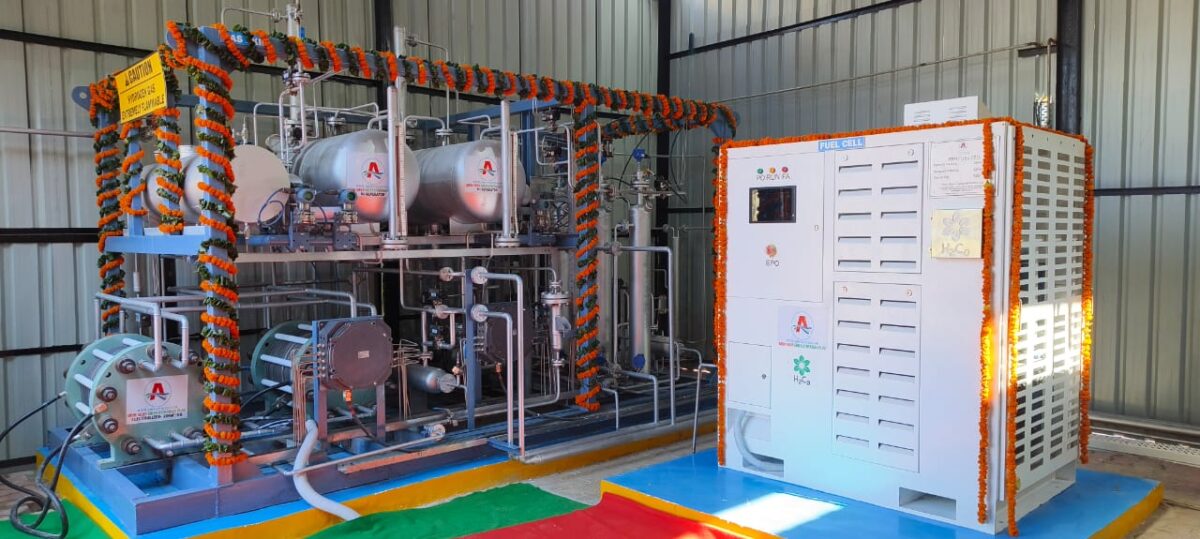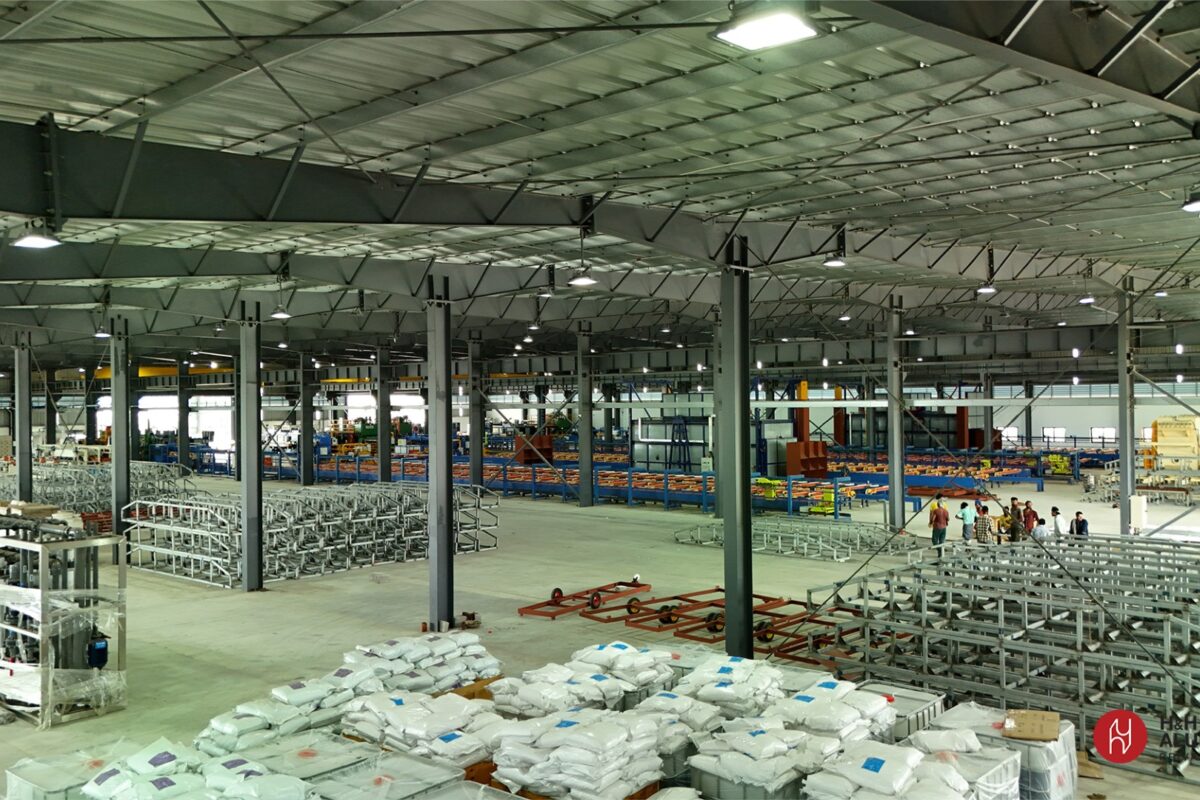India’s Airox Nigen Equipments announced it has commissioned its indigenously built electrolyzer and fuel cell for SJVN’s multi-purpose green hydrogen pilot project in Jhakri, Himachal Pradesh. The plant will produce hydrogen gas by splitting hydrogen and oxygen from water with the help of an alkaline electrolyser of 20 Nm3/hour capacity by utilising renewable energy supplied from SJVN’s 1.31 MW solar power plant.
The project is set to produce 14 kg of green hydrogen daily during eight hours of operation, which will be stored in six storage tanks. The green hydrogen produced from the project will be utilized to meet combustion fuel requirements of high-velocity oxygen fuel (HVOF) thermal spray coating facility for turbine underwater parts. In addition, it will be used to generate electricity through its 25 kW fuel cell.
Airox Nigen’s scope of work included design, engineering, supply, installation and commissioning of the hydrogen plant along with fuel cell.
Airox Nigen Equipments has previously commissioned hydrogen plants for THDC Rishikesh and Nuclear Power Corp. Tarapur with production capacity of 60 Nm3/hour and 25 Nm3/hour, respectively.
Airox Nigen also announced the setting up of a new electrolyser manufacturing facility of 3 GW scale at recently acquired 16 acres of land near Rohtak, Haryana.
Tokyo Tech scientists have reported that their newly developed perovskite – BaScO2.5 doped with W6+ cations (BaSc0.8W0.2O2.8) – has achieved high proton conduction at low and intermediate temperatures due to its large amounts of oxygen vacancies. “By the donor doping of large W6+, this material can take up more water to increase its proton concentration, as well as reduce the proton trapping through electrostatic repulsion between the dopant and proton,” said the scientists, who published “High proton conduction by full hydration in highly oxygen deficient perovskite” in the Journal of Materials Chemistry A. “These findings could pave the way to the rational design of novel perovskites for protonic ceramic fuel cells (PCFCs) and electrolysis cells (PCECs).”
RWE said it plans to build an 800 MW hydrogen-ready gas-fired power plant at its Gersteinwerk power plant in Germany. “Following intensive technical soundings, RWE has commissioned an Italian-Spanish consortium to plan the project,” said the German company. “Work on the planning approval process is already underway.” It noted that the consortium consists of Ansaldo Energia (Italy) and Tecnicas Reunidas (Spain). RWE Generation CEO Nikolaus Valerius said the company will only make a final investment decision after it secures the connection to a hydrogen network.
The German Federal Cabinet has approved a draft bill to significantly accelerate the market ramp-up of hydrogen to 2030. “The Hydrogen Acceleration Act simplifies further planning, approval, and award procedures for the production, storage, and import of hydrogen: for example, maximum deadlines are set for approvals under water law, the early start of measures is made easier, procedures are shortened, fast-track procedures are accelerated, and test procedures for electrolyzers are simplified,” said the German government. It argued that hydrogen infrastructure projects would serve the overriding public interest. “This means that they are of particular importance when the approval authorities are weighing up decisions.”
This content is protected by copyright and may not be reused. If you want to cooperate with us and would like to reuse some of our content, please contact: editors@pv-magazine.com.









By submitting this form you agree to pv magazine using your data for the purposes of publishing your comment.
Your personal data will only be disclosed or otherwise transmitted to third parties for the purposes of spam filtering or if this is necessary for technical maintenance of the website. Any other transfer to third parties will not take place unless this is justified on the basis of applicable data protection regulations or if pv magazine is legally obliged to do so.
You may revoke this consent at any time with effect for the future, in which case your personal data will be deleted immediately. Otherwise, your data will be deleted if pv magazine has processed your request or the purpose of data storage is fulfilled.
Further information on data privacy can be found in our Data Protection Policy.